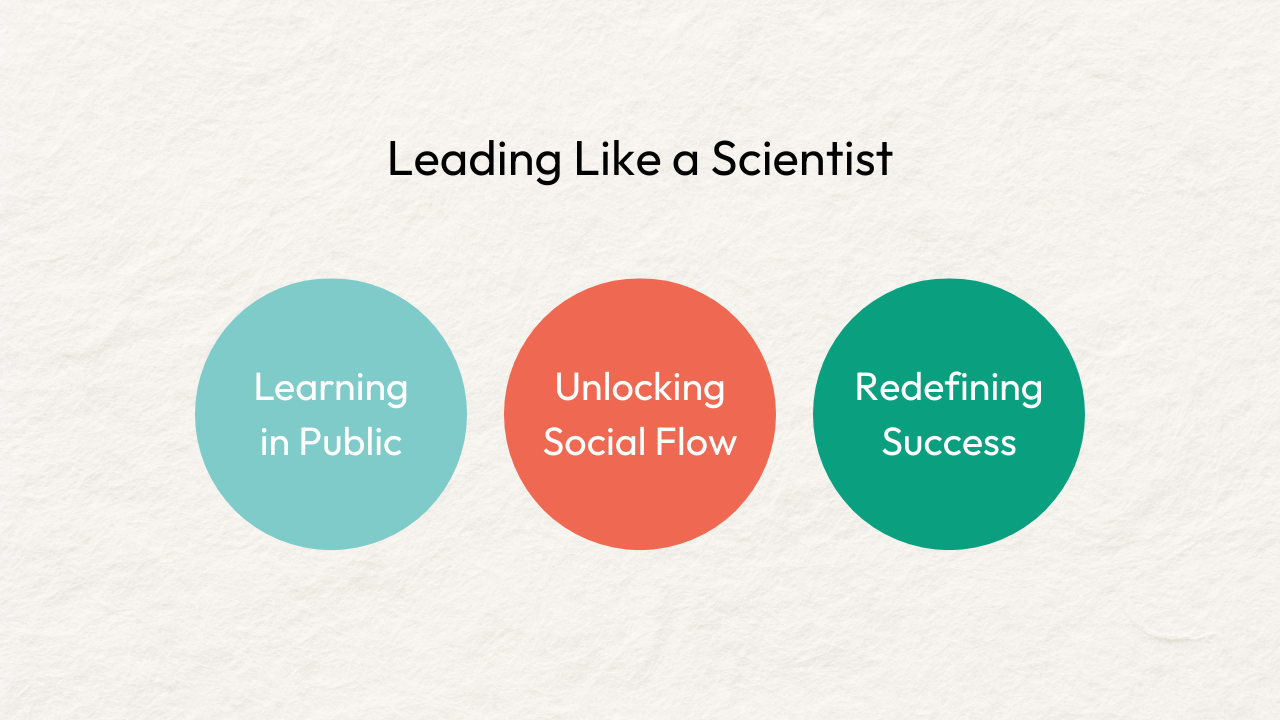When aerospace engineer Burt Rutan’s team set out to build a private spacecraft on a limited budget, they faced challenges deemed insurmountable without government-scale resources. But they tackled spaceflight differently.
Rather than following the hierarchical approach of traditional aerospace companies, Burt Rutan created a culture where experimental data, not authority or lengthy theoretical debates, drove decisions. This experimental mindset ultimately led his team to win the $10-million Ansari X Prize with SpaceShipOne, revolutionizing private spaceflight.
Traditional leadership models that rely on certainty and control are increasingly ineffective. The complexity and pace of our modern world demand a kind of different leadership, one that embraces uncertainty rather than fighting against it.
Transforming Uncertainty into Discovery
Leading like a scientist begins with a fundamentally different relationship with uncertainty. While leaders traditionally view uncertainty as a threat, research shows that teams that openly acknowledge what they don’t know consistently outperform those projecting false confidence.
An experimental mindset means approaching problems with curiosity rather than anxiety. When faced with unexpected results, scientists don’t rush to blame someone or hide the outcome. Instead, they lean in with genuine interest: “That’s interesting… what can we learn from this?”
Similarly, this mindset can transform how we collaborate. It creates environments where people actually test their assumptions and engage in what researchers call humble inquiry – asking genuine questions rather than providing ready-made answers. Their research suggests that when we lead with questions instead of solutions, critical information surfaces more readily.
However, for this to work, it requires updating our definition of success from achieving a desired outcome to learning something new. This perspective transforms the paralyzing fear of being wrong into an intellectual adventure, where uncertainty is a doorway to insights that linear goals might have never revealed.
3 Ways to Lead Like a Scientist
You don’t need a laboratory to lead like a scientist. An experimental mindset can be applied in any context where uncertainty exists – which, in today’s world, is virtually everywhere. Below are three simple practices to incorporate into your leadership.

- Learning in Public. To lead like a scientist, openly admit when you don’t know something, share failures and lessons learned, ask questions instead of always providing answers, and document your thinking. This transparency builds psychological safety, creating an environment where everyone feels safe to contribute ideas, ask questions, and acknowledge mistakes.
- Unlocking Social Flow. Encourage team members to design their own experiments, make space for sharing insights, and remove as many artificial barriers as possible (admin, chain of command). This will allow you to shift from “Who has the right answer?” to “How can we learn more?”
- Redefining Success. Success isn’t just hitting targets, it’s building knowledge that can support long-term ambitions. Treat unexpected results as valuable data. When everyone understands that learning is part of success, they take smarter risks, surface problems earlier, and develop more interesting solutions to complex challenges.
Leadership in the face of uncertainty isn’t about having all the answers. It’s about asking better questions and designing tiny experiments to find the answers. By adopting an experimental mindset, we can transform uncertainty from a source of anxiety into a springboard for discovery.
So, the next time you face a challenge without a clear path forward, ask yourself: “What would a scientist do?” This will likely involve curiosity, experimentation, collaboration, and being comfortable with not knowing… yet!
